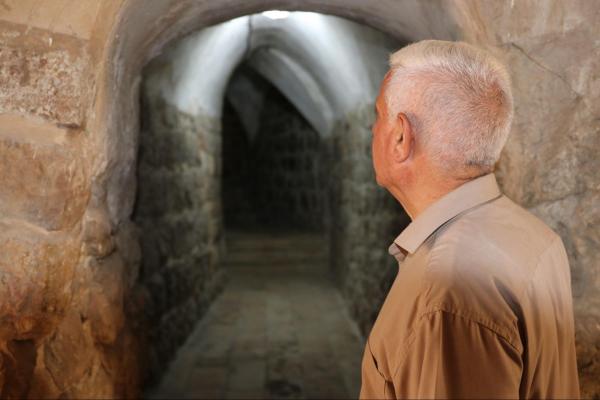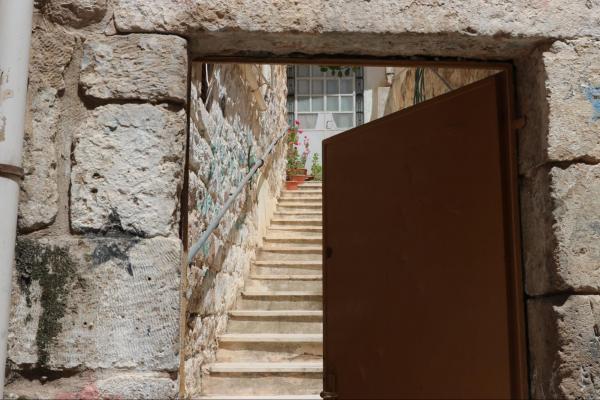As part of the Ramadan traditions, many families, children, and youth go with their parents or grandparents to the old city of Hebron to hear the stories of how they used to live, memories of their childhood, and play there. Generally, they will go every week of Ramadan, and sometimes the children will hear the same stories, but they are willing to listen again because they like seeing their parents happy while remembering their lives in the old city.
Locals say that years ago, most of the people used to live around the Ibrahimi Mosque. They didn’t call it the dead city at that point, and they never imagined that it would be declared dead years later. Never in a thousand years would our ancestors agree to name it like that. Locals and merchants used this metaphor of the “dead city” because very few people come to the old city to visit or buy anything anymore. The old city used to be the heart of the city where people were born, worked and died between the walls of those houses. Every stone laid has a story, every bird has witnessed something, and every sound has a place there.
Mohamed Mahmoud Al-Jabari took a CPT member on a trip to the old city to listen to what he tells his children and grandchildren about his life in the old city. “Life now differs from before, and everything becomes gray,” he said. “I left my house that I own and went to a place far from soldiers and the old city. I left, as many people like me have because we couldn’t handle living there. The soldiers put many limitations on us like curfews, arrests, and unstable and secure lives. I was afraid for my children and my family, so I left.”

Ramadan encourages people to visit the old city with their children to bring life back to the streets. The crowds and the noise lighten the atmosphere, and people come to spend money, making purchases from locals to support them.
During your visit to the old city you would enjoy the harmony of children’s laughter, birdsongs, sellers voices encouraging people to buy something and the sounds of car engines—sounds make the old city beat with life. Not to mention, beautiful odours overlapping one another, evoking different flavours, making it impossible to determine if they’re coming from the shops or the houses.
“This would be your home and your neighbourhood if the settlers and soldiers weren’t here. We used to know everyone and which places belonged to who. All of us were one family taking care and looking out for each other,” Al-Jabari said.
A grandfather walks up and down each street while he names each building, to whom it belongs, and remembering how many people lived there. It’s a common practice for our elders when they come to the old city, as part of their tour they mention every building belonging to which family. While we walk, he stops for a while and points with his finger to a big building. “That is your grandfather’s house. He lived in this building with his children, as did your father too,” he remembered. He only had to ask me what my family name is, and he knew everything about my family history and where they used to live. I visited the house once when I was young, but then I forgot about it.

I have always believed that I belong to this place without feeling a connection, but today it was different. Today I felt more connected since I know that my roots come from this place and this building. I thought about bringing my grandfather and asking the family if we could visit their house for a while. I would let my grandfather describe how they lived and ask him to bring some stories of this place.
At the end of the trip, I asked Al-Jabari about his hope for the future. “All I want is to come back and live in the old city as I did in my childhood,” he said. We shook hands as is tradition to say goodbye. I walked alone into our office, thinking of what he said and wondering what the title of this article should be.
I thought the most fitting title would be to call it a trip to the old city because even citizens of Hebron do not travel there regularly for the same reasons Al-Jabari has not. Hopefully, it will not be a trip in the future. We want it back!




